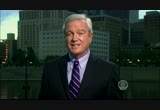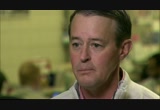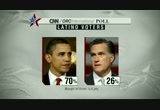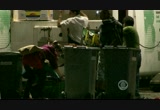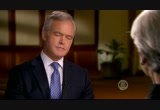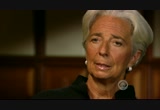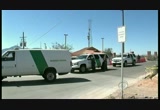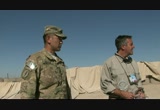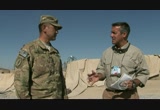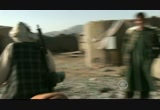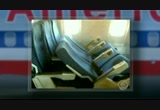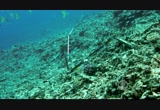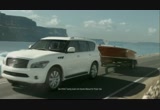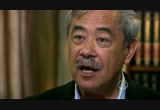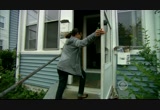tv CBS Evening News With Scott Pelley CBS October 2, 2012 5:30pm-6:00pm PDT
5:30 pm
today in one of the biggest battleground states in the presidential election. >> i can say once in my life i camped out to vote. >> pelley: campaign 2012 reports from dean reynolds and jan crawford. mark phillips on the financial crisis in europe. it's so bad in spain some people are forced to do their shopping in the trash. charlie d'agata in afghanistan where american troops are on the lookout for enemies among their afghan allies. >> every soldier is required to carry their weapon with them at all times. and an ingenious idea for helping the poor inspired by his mother. >> i'm hoping my mother is watching and that she is enjoying this. captioning sponsored by cbs this is the "cbs evening news" with scott pelley. >> pelley: good evening, election someday five weeks from today but many of the states are getting a head start. today voters in ohio-- one of
5:31 pm
the key battleground states that will tip the balance on which way this election goes-- began casting their ballots. that brings to eight the number of states where voting is already under way. 34 states in all will begin voting before november 6. the latest preelection polling in ohio-- the second-biggest battleground state-- shows president obama with a ten-point lead over mitt romney, 53% to 43%. dean reynolds is in the buckeye state tonight with the voters. dean? >> reporter: scott, back in 2008, nearly 30% of ohio's more than seven million voters cast their ballots before election day, and the campaigns this time around would love to see them increase that percentage. >> three, two, one! ( cheers and applause ) >> reporter: what some are calling election month began in ohio promptly at 8:00 a.m.
5:32 pm
♪ some voters had over-nighted in the parking lot outside a columbus polling place. >> i think there's been a lot of controversy about early voting. >> reporter: emerald hernandez was there bright and early. >> for me it's a convenience, i can come in and get it done. >> reporter: you spent the night, though, to be one of the very first. >> i did. i was pretty excited. i thought why not? it's something different. i can say once in my life i camped out to vote. >> reporter: the names of the early voters are reported by the county board of elections. not their votes, just their names. the campaigns try to guess how they voted based on where they live or past voting history. chris redfern chairs the ohio democratic party. >> you can make assumptions based on one surname "o'connor or o'brien" for instance. if you have an irish surname, you're probably a member of the catholic church. we can look at the local parish and whether or not that parish is more conservative or progressive. >> reporter: scott jennings runs the romney campaign in ohio.
5:33 pm
>> you can make decisions based on who's voted and who hasn't, where you put your dollars, where you send your mail, where you do your phone calling and door knocking. so if i know you've already voted the first week of october i'm not going to send you a piece of direct mail three days before the election. it would be a useless exercise. >> reporter: and in a close campaign, scott, no campaign wants to spend much time or money on anybody other than that small group of voters known as persuadables, the ones who will be getting a lot of attention over the next five weeks. >> pelley: the election already under way. dean, thanks very much. another state that could go either way is colorado. and the candidates are preparing for the first presidential debate in denver tomorrow. mitt romney is trailing far behindn fr latino voters, and he made news on illegal immigration today. back in june, president obama announced that he would not deport illegal immigrants who came here as children with their parents. well, today romney told the "denver post":
5:34 pm
>> pelley: jan crawford is covering the romney campaign. jan, that's new. >> reporter: well, scott, this marks the first time that romney has said he's not going to take away the two-year visas from the people holding them. campgnrces say he's not going to extend them and romney said in the interview that's not going to be necessary because he's going to be ointerm immigr. but this two-year visa program is popular with hispanics, that's a group that could decide the election and romney's got to make up some ground. there's a new cnn poll that has the president with 70% of the vote among hispanics compared to romney's 26%. romney is hitting the president hard on immigration. he's saying he's playing politics with this issue, he's passing what he called a stopgap measure, this two-year program, instead of passing long-term reform like he promised four years ago.
5:35 pm
scott you can expect to hear more of this in the debate tomorrow night. >> pelley: jan, thanks very much. cbs news will bring you live covegef e debate tomorrow night beginning at 9:00 eastern time. we got a little good news today on the economy. overall, auto sales were up 13% last month from a yearefore. among the u.s. automakers, ford sales were unchanged, g.m.'s were up 1.5%, chrysler reported a 12% increase. there hasn't been enough good news like that on the economy. the recovery, of course, is painfully slow and one of the biggest reasons is the recession in europe. the 27 countries of the european union add up to the world's- largest economy, but they're reportrecordnemployment. in spain, unemployment among young people is 50%. mark phillips went to barcelona to see what happens when an economy goes into freefall. >> reporter: spain can be a deceptive place. in the early autumn sunshine and
5:36 pm
in the markets groaning with foodstuffs it's difficult to tell this is a country with a collapsing economy and unemployment rate of 25% that threatens to take the rest of europe and maybe even the united states economy down with it. but wait until they close up at barcelona's boqueria market and follow the porters out back to where they dump the trash and you get a different impression. in spain these days, one person's garbage can be another one's sustenance. just because you can't sell it doesn't mean you can't eat it. at closing time around here, the shadows are full of the desperate and the hungry. and when darkness falls, they come out. they joke and call it recycling. ivan and his friends are regulars here. for them there's no such thing as a sell-by date. >> i know here i can find fresh juice and some vegetables. >> reporter: because many people come here to pick them. >> and not only homeless and--
5:37 pm
normal people. >> reporter: there's a new kind of normal in spain. once it was considered shameful to have to take food from one of barcelona's food banks. these trucks used to deliver donated food relief mostly to immigrants who'd fallen on hard times. not anymore. laia ginjoan, who helps run this center, said well over a million people in spain now depend on food banks-- twice as many as before the crisis. and they are a new type of clientele. >> what's shocking for us that never happened before is all these people that are from here... >> reporter: spaniards from here who previously would have been working? >> yes. >> reporter: feeding their families. >> yes. >> and who can't anymore? >> no, because all the members of their families are unemployed. that's the main problem. the whole family. >> reporter: to make matters worse, the summer tourism season is now winding down, normally a time of more layoffs. all the projections are for spain's problems to get worse.
5:38 pm
>> pelley: mark's joining us in barcelona tonight. mark, these terrible problems in spain started as a banking crisis but there's more to it than that. >> reporter: it has been a banking crisis until now and the banks here, as you know, have been bailed out. but now spain is under great pressure to go to europe for a broader bailout. spain, though, compared to other countries which have asked for bailouts-- greece in particular-- is a much bigger country and the sums talked about are absolutely enormous. >> pelley: the next step may be a bailout of the entire country of spain by the e.u. mark, thanks very much. spain is among europe's largest economies, but the government has borrowed so much money that it's been forced into huge spending cuts and layoffs to try to repay what it owes. one of the people working to rescue europe is christine lagarde. she's the head of the international monetary fund and one of the most powerful people in the world in finance.
5:39 pm
the i.m.f. is essentially a massive bank that helps countries manage debt and international trade. at her headquarters in washington, we asked lagarde about the spaniards like the ones you just met. >> i feel very bad and very sorry for the people, because i know how hard it is and i know how difficult it is for people who lose their job, for families who find it difficult to make ends meet. but equally i know that it's necessary. and it's a process through which countries have to go in order to restore their situation and be able to grow again and create jobs again. >> pelley: how long do you imagine the troubles in europe will go on? >> it has been going on for a long time. a lot has been done. you know, the europeans have been serious about strengthening their fiscal architecture. but they need to do more. >> pelley: but what are we talking about here? two years? three? five? >> it's hard to say.
5:40 pm
i think it will take a long time to restore public finances in the eurozone because it has been long in the making. it will be relatively long in the if i fixing as well. >> pelley: years, then? >> oh, certainly, yes. >> pelley: the unemployment rate in spain is over 25%. >> uh-huh. >> pelley: the unemployment rate for youth in spain is over 50%. this is what we in america would consider to be great depression numbers. will the spanish government have to be bailed out. >> the spanish government is currently taking very, very courageous measures. whether you look at bank restructuring, whether you look at structural reforms to make to make the spanish economy agile, flexible, able to capture growth, to help people create jobs. they're also taking some fiscal measures in order to reduce their deficit so all of that is hard, but it's courageous, and it needs to be supported. >> pelley: christine lagarde,
5:41 pm
managing director of the international monetary fund. late today secretary of state hillary clinton said she put together a commission to investigate the attack on the u.s. consulate in benghazi, libya. it will be led by the former head of the joint chiefs of staff, admiral mike mullen and former u.s. ambassador thomas pickering. they will look at security and how four americans, including ambassador chris stevens, were killed in an attack on the anniversary of september 11. american airlines discovers why some of its seats came loose. u.s. soldiers are on the lookout for afghan allies who may be enemies. and why half of the great barrier reef has vanished. when the "cbs evening news" continues.
5:44 pm
>> pelley: two u.s. border patrol agents came under fire early this morning along the mexican border and agent nicholas ivy was killed. his partner was wounded. they were on patrol in arizona, the shooter or shooters got away. the agents were assigned to a border patrol station recently named after agent brian terry who was killed in a shoot-out with drug dealers two years ago. next sunday will mark 11 years
5:45 pm
since the u.s. went to war in afghanistan. the second-longest war in u.s. history behind vietnam. the plan for getting american troops out depends on training afghan soldiers to do the fighting against taliban themselves but there have been setbacks lately as some of the trainees have turned their guns on their u.s. allies. 33 americans have been killed that way this year. what the does that do to america's road out of afghanistan? we asked charlie d'agata to hook up with a joint patrol in kandahar province. >> what you see here is the cement blocks, obstacles we put in place. >> reporter: this is the stark new reality for u.s. combat troops working alongside their afghan partners. >> it's restricted the traffic- ability of anything large or fast. >> reporter: and that's new within the past two weeks? >> yes. where we used to have this wide open space. >> reporter: lieutenant colonel leroy barker got orders to reinforce his small outpost in kandahar province not against
5:46 pm
the taliban but against insider attacks from his afghan partners. while there's never been one here, it's already driven a wedge between the two forces. the americans and afghans are separated by a cement walkway. u.s. troops call it the alamo. a u.s. soldier stands guard with the machine gun 24 hours a day. >> they are always looking, it's always in the back of their mind, kind of like you are working with a tiger, you never want to turn your back on it. >> reporter: afghan commanders are pinned to the wall of the guard post, they tier only ones allowed through the wall. lieutenant colonel barker told us any unidentified afghan that turns up would be shot. there are a lot of people walking around with their weapons around here. but we've also seen people that appear to be patrolling. is that correct? >> yes, so every soldier is required to carry their weapons with them at all times.
5:47 pm
>> reporter: the combat outpost is on the edge of a main taliban route. the camera inside this blimp watched suspicious activity miles away. you have people walking by, you have goat herders. identifying the enemy within is more difficult. afghan security forces were recruited so quickly that the americans don't know much about them. under the new orders, every afghan is now fingerprinted and registered on a database. lieutenant colonel barker's men are eager to get back into taliban territory. they took us to the furthest checkpoint they ventured out to since the new orders. the first line of defense against the taliban. the checkpoint is now manned by afghan forces. but we found a disorganized group with few uniforms but plenty of guns, a potential danger for u.s. troops. >> if you come to an environment like this there are afghans with weapons. >> they're not going to put away
5:48 pm
their weapons just because we're here. as you see, everybody else has got theirs, too. >> reporter: you've built this relationship on trust and now you're saying well, hold on, maybe we don't trust you and-- that's not what you're saying. >> right. >> reporter: but that's the impression. >> that may be the message. we tried to soft than blow as much as we can. they felt guilty for the incidents themselves so they understood why we were trying to do this. we're going to continue this relationship as best we can given this and they were good with it. >> reporter: the soldiers that we were with hoped to finish vetting the afghan forces this week but, scott, commanders have a new list of conditions that have to be met before their joint operations can start again and we're told the clock would be reset if there's a new insider attack. >> pelley: hard work to do in afghanistan. charlie thanks very much. the mystery of the loose airline seats may be solved. that's coming next.
5:51 pm
>> pelley: american airlines said today it has figured out what caused seats to come loose three times on its 757s. the good news is it wasn't vandalism or sabotage. transportation correspondent mark strassmann has the latest on all this. mark? >> reporter: scott, those three incidents happened over the last week, seats tilted in midair. passengers were sitting in the seats. the flights had to turn back. american has been reconfiguring planes, moving around rows of seats to create extra leg room and charge higher prices for the comfort.
5:52 pm
the airline now blames the mishaps on human error. some rows were reanchored to the plane's floor incorrectly. today an american airlines spokesman said: american says mechanics are now evaluating all 47 of its 757s where the same clamp was used. they've evaluated 36 so far and, scott, discovered six had the clamps installed wrong. >> pelley: mystery solved, mark, thanks very much. australia's great barrier reef is a natural wonder and it is in danger. a report out today says half of the reef has disappeared over the past three decades. these before-and-after images show the extent of the damage. a lot of factors are to blame, including storm damage and rising ocean temperatures. a stroke of genius that is helping families in need. that's next. ,,
5:58 pm
they donated their time, and their money, to bail out a beloved state park. only to good evening. i'm allen martin. >> i'm dana king. they donated time and money to bail out a beloved state park. >> only to learn that the parks department had been sitting on millions in hidden funds the whole time. now those south bay donors want
5:59 pm
their money back. cbs 5 reporter len ramirez explains no refunds. >> reporter: what refund? the rugged natural beauty of henry coe state park 89,000 acres is a big reason why people donated to save it. now those same well-meaning folks are feeling betrayed by the state they once tried to help. >> the most aggravating thing for me is we work for more than a year to raise enough funds to keep the park open for years and suddenly discovered it's not needed. >> reporter: the retired professor and his wife are just two of the many people who donated their time and their money to keep their beloved henry coe state park from closing due to drastic cuts in the california budget. their coe park preservation fund became a statewide model and a senate
269 Views
IN COLLECTIONS
KPIX (CBS) Television Archive
Television Archive  Television Archive News Search Service
Television Archive News Search Service 
Uploaded by TV Archive on

 Live Music Archive
Live Music Archive Librivox Free Audio
Librivox Free Audio Metropolitan Museum
Metropolitan Museum Cleveland Museum of Art
Cleveland Museum of Art Internet Arcade
Internet Arcade Console Living Room
Console Living Room Books to Borrow
Books to Borrow Open Library
Open Library TV News
TV News Understanding 9/11
Understanding 9/11

